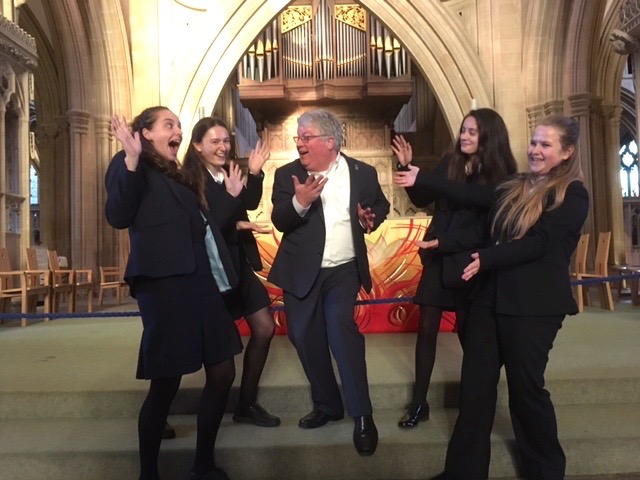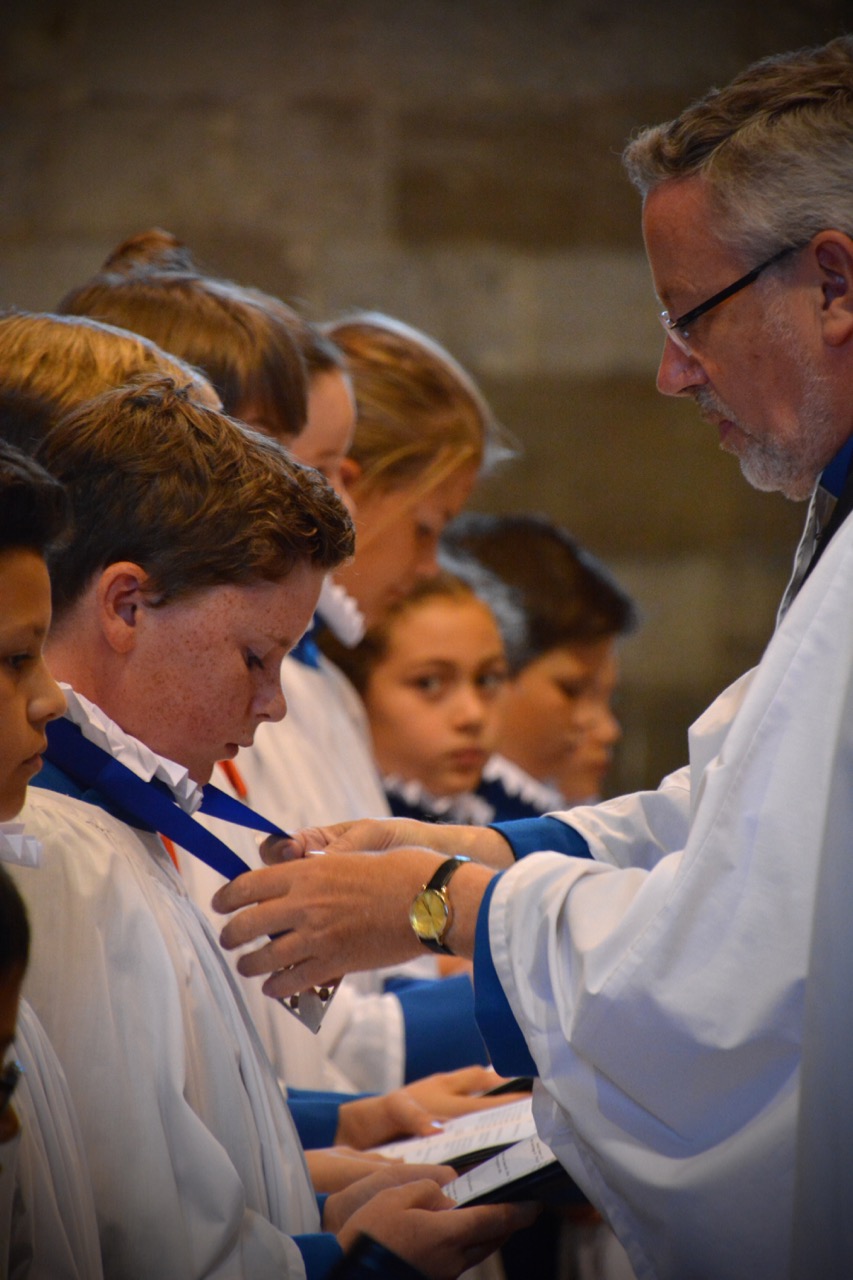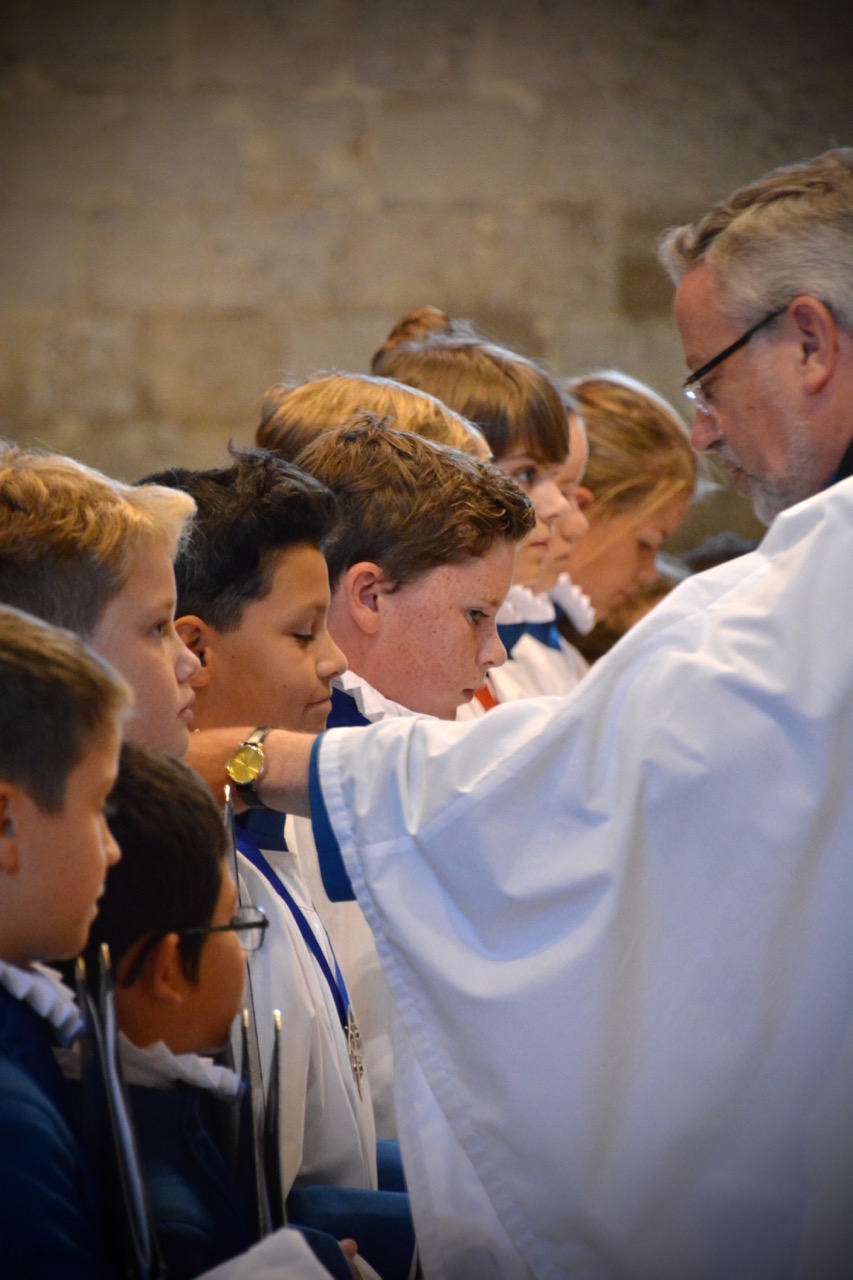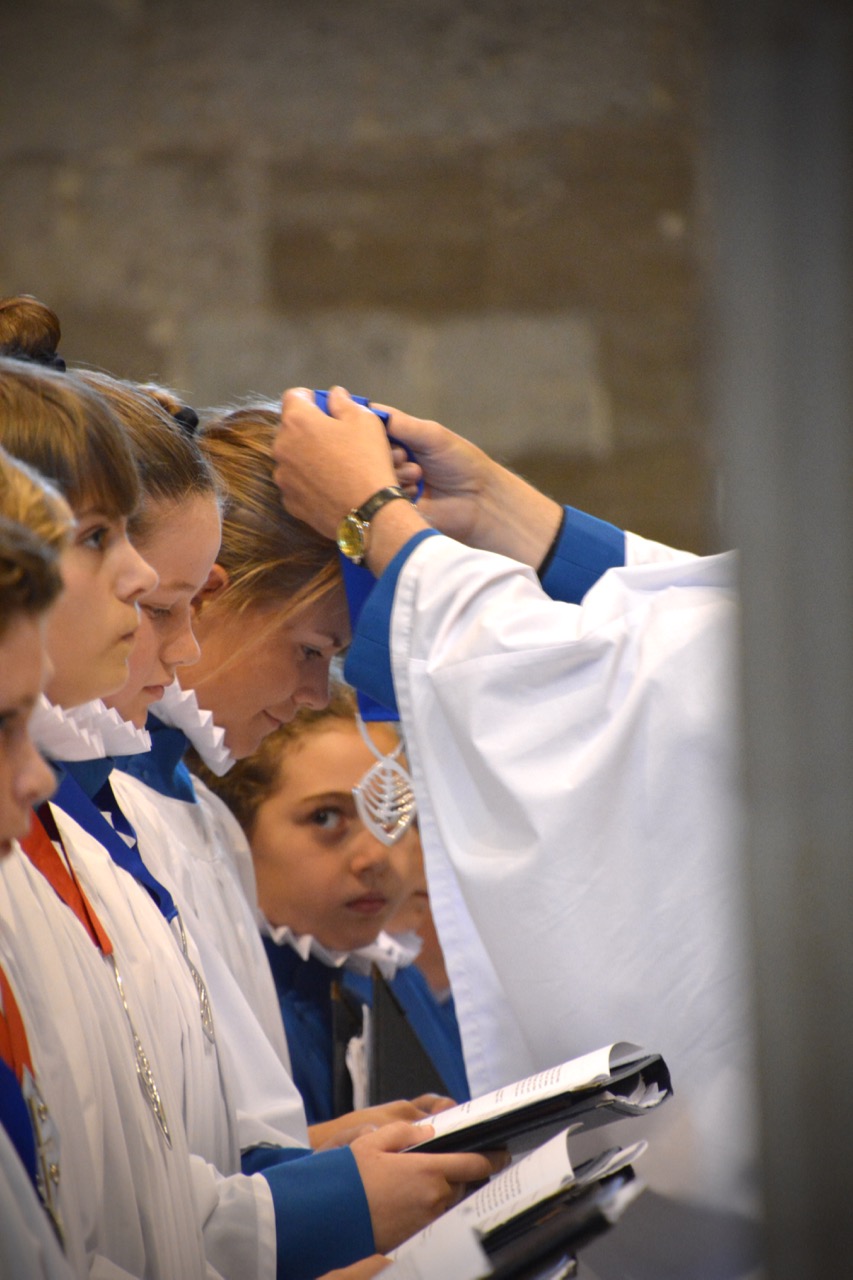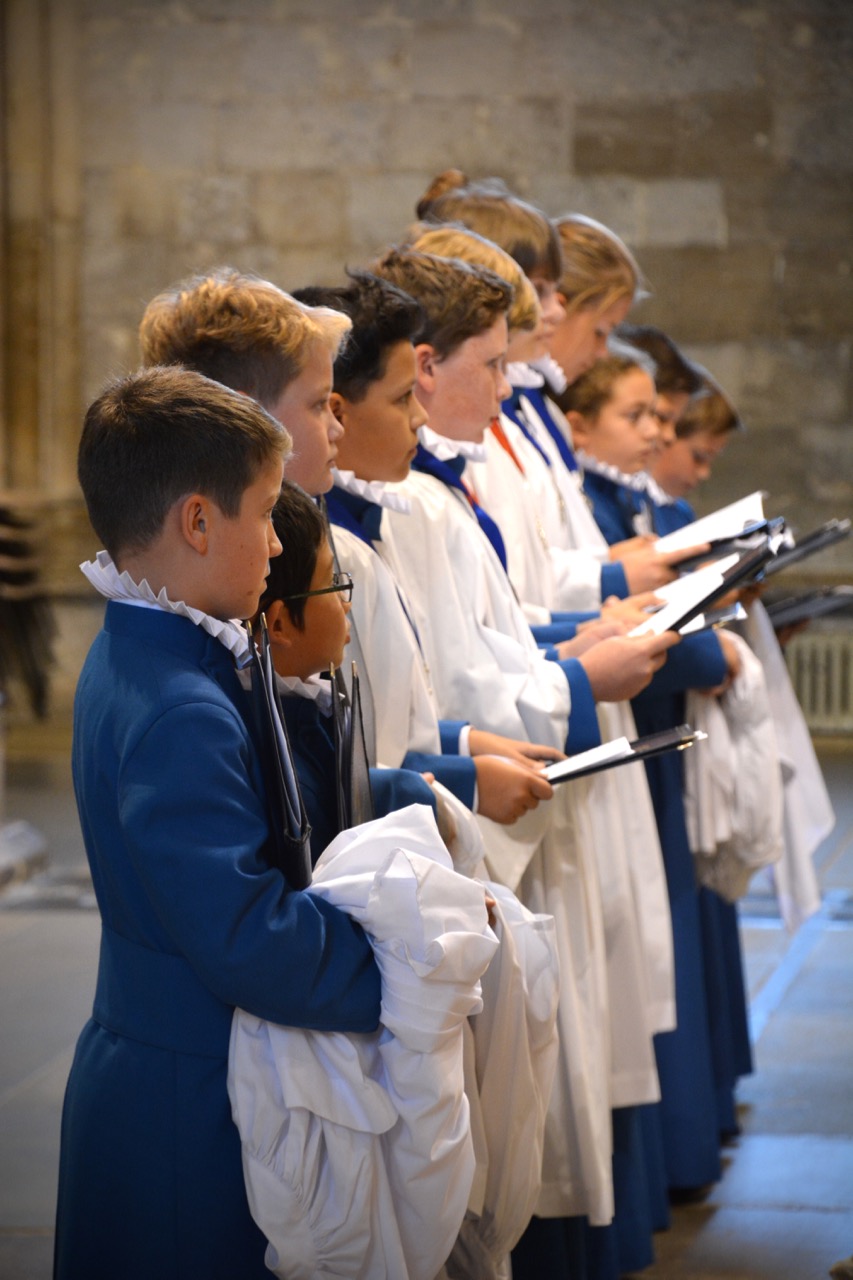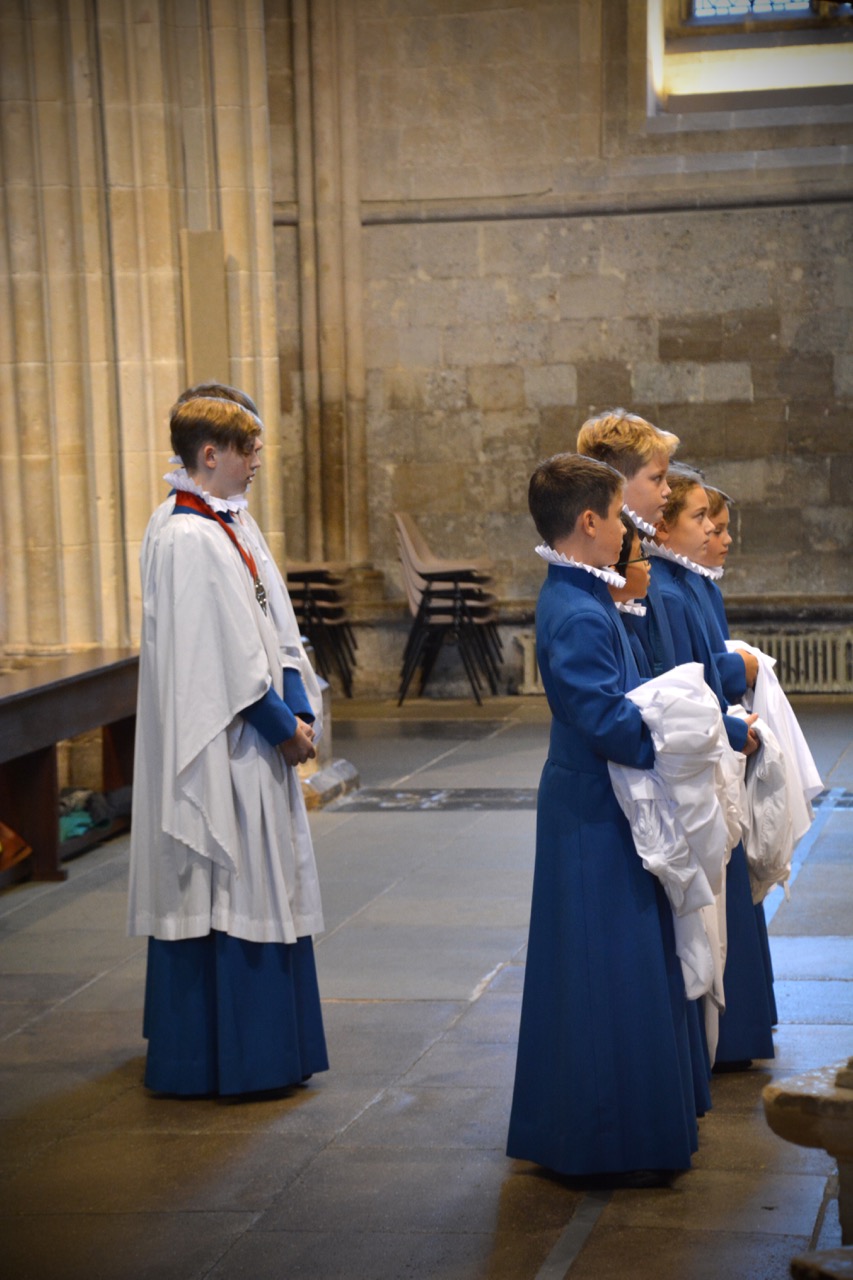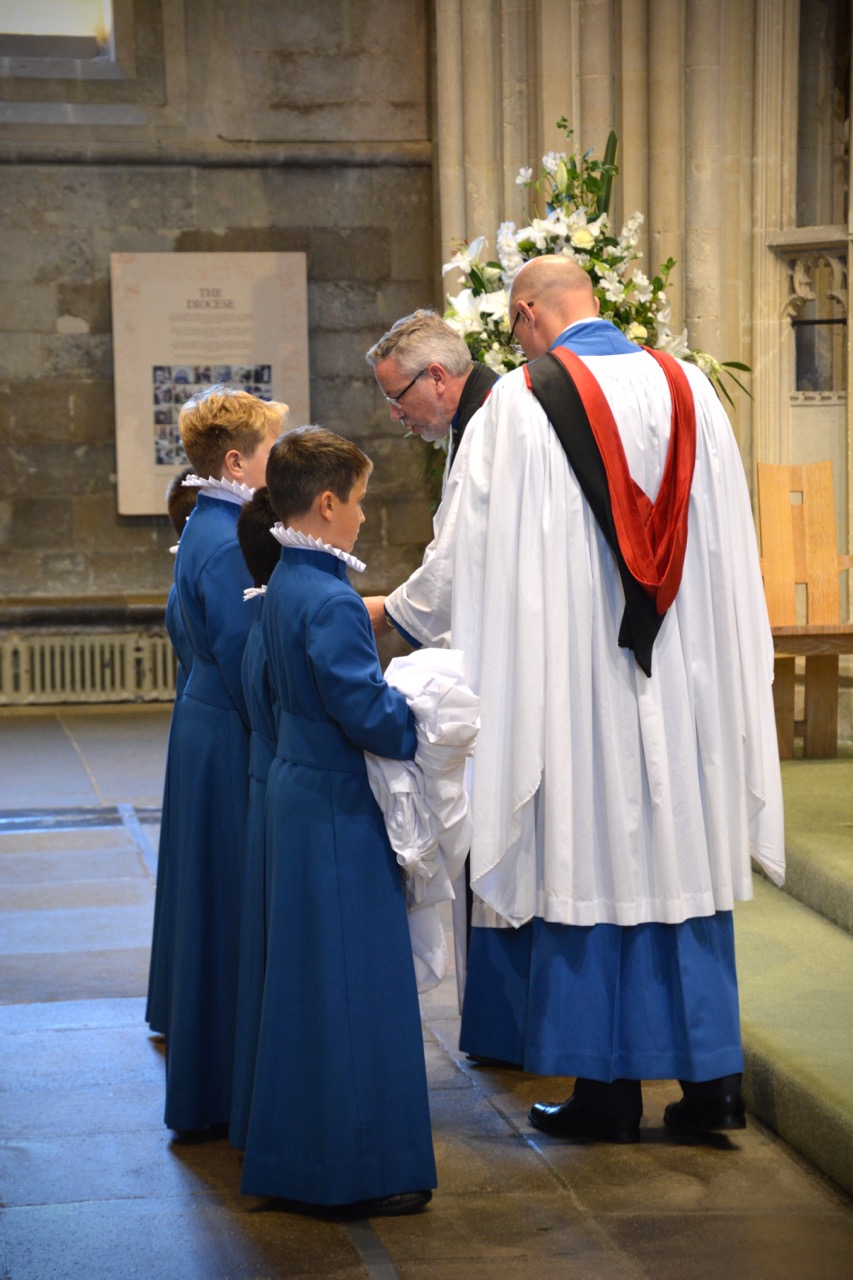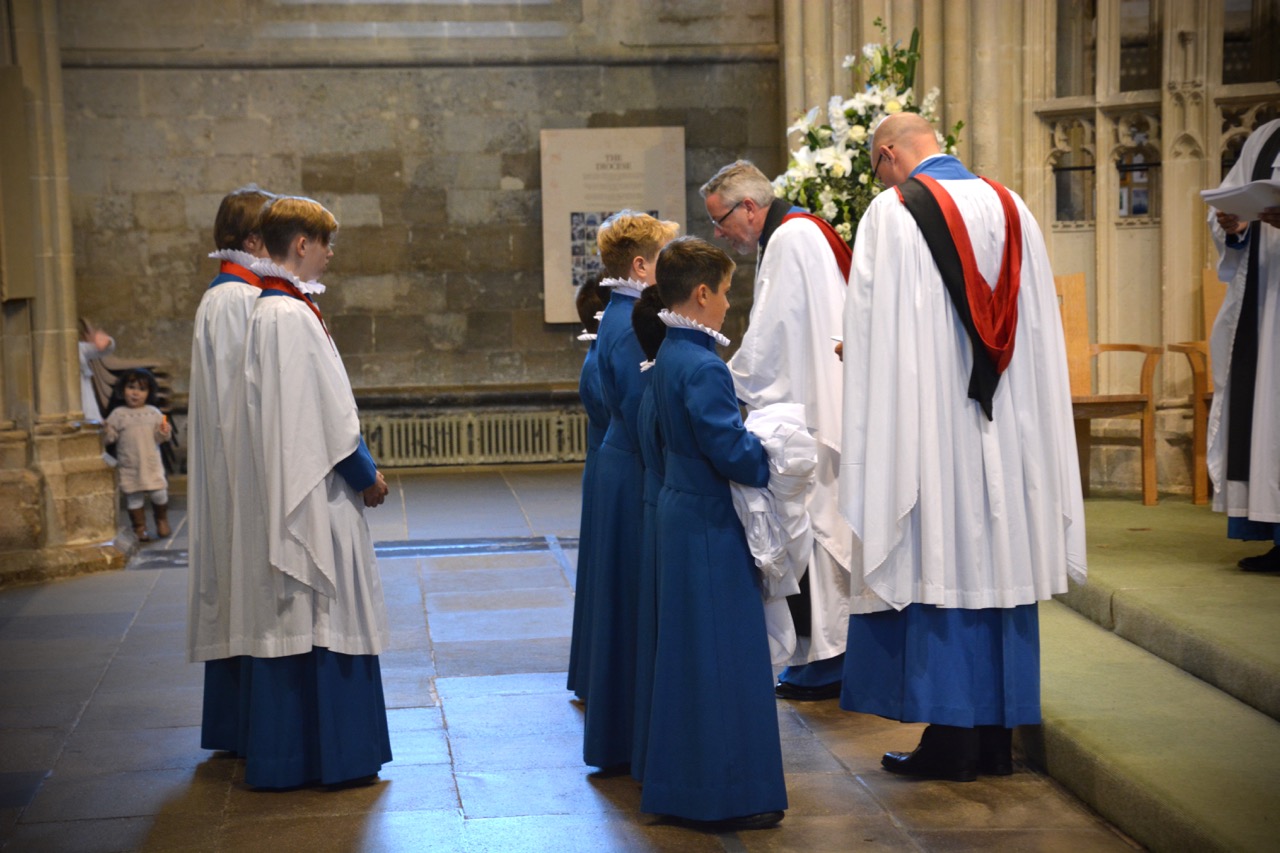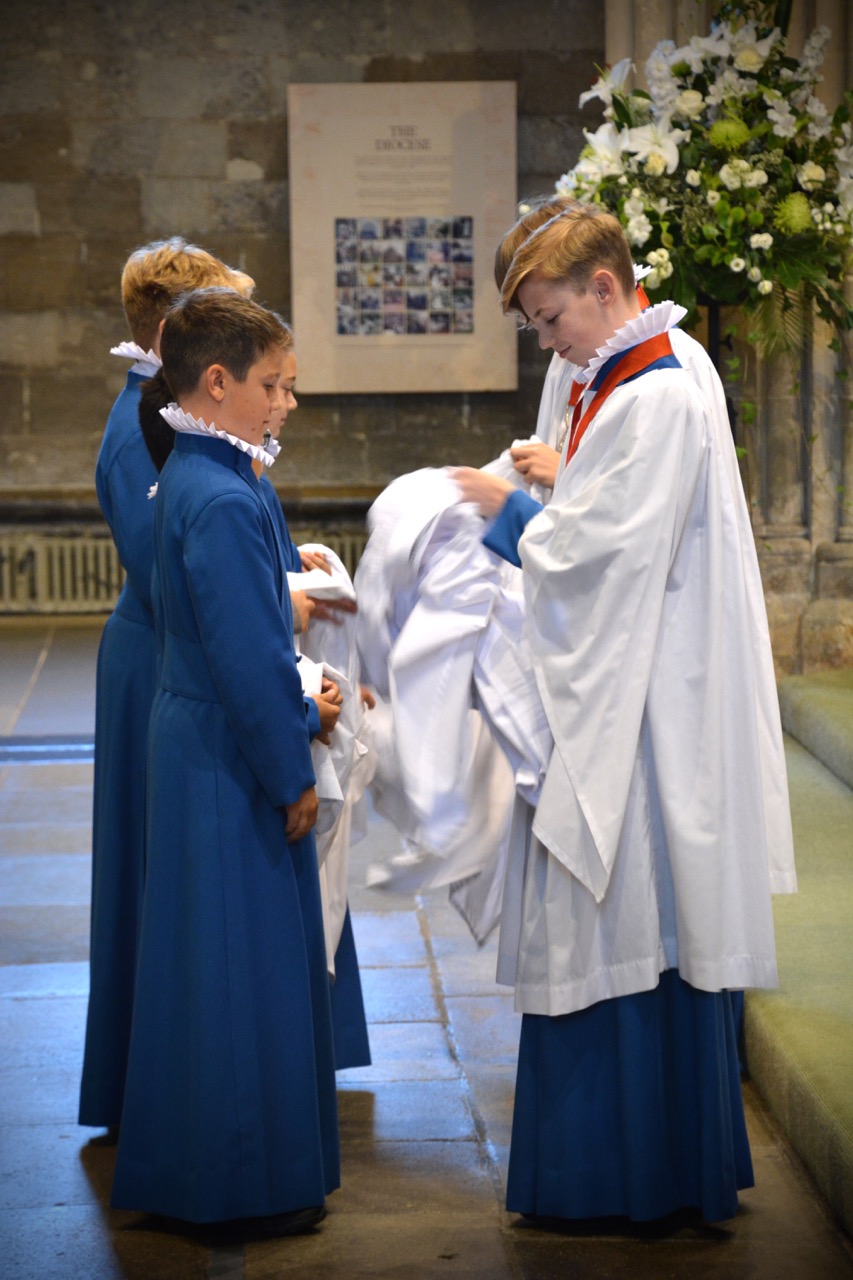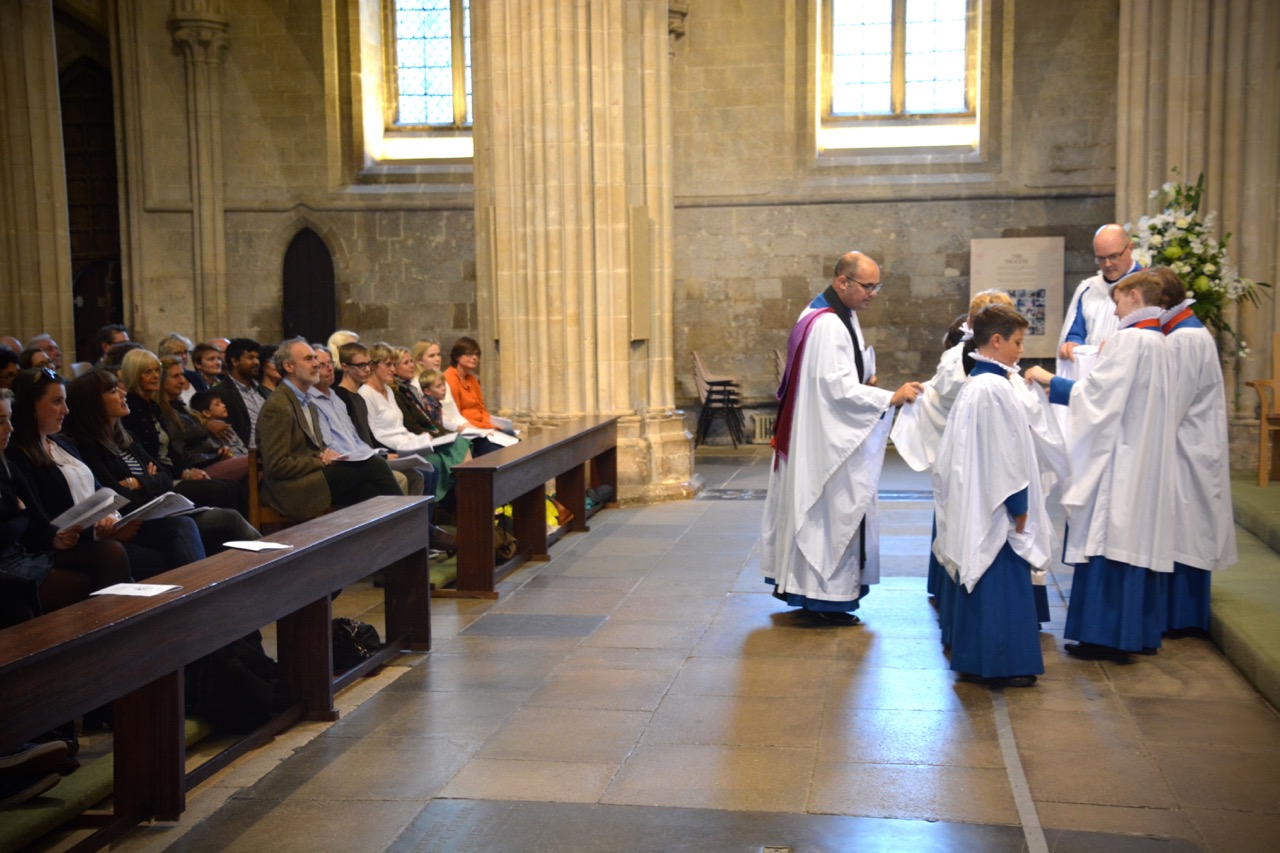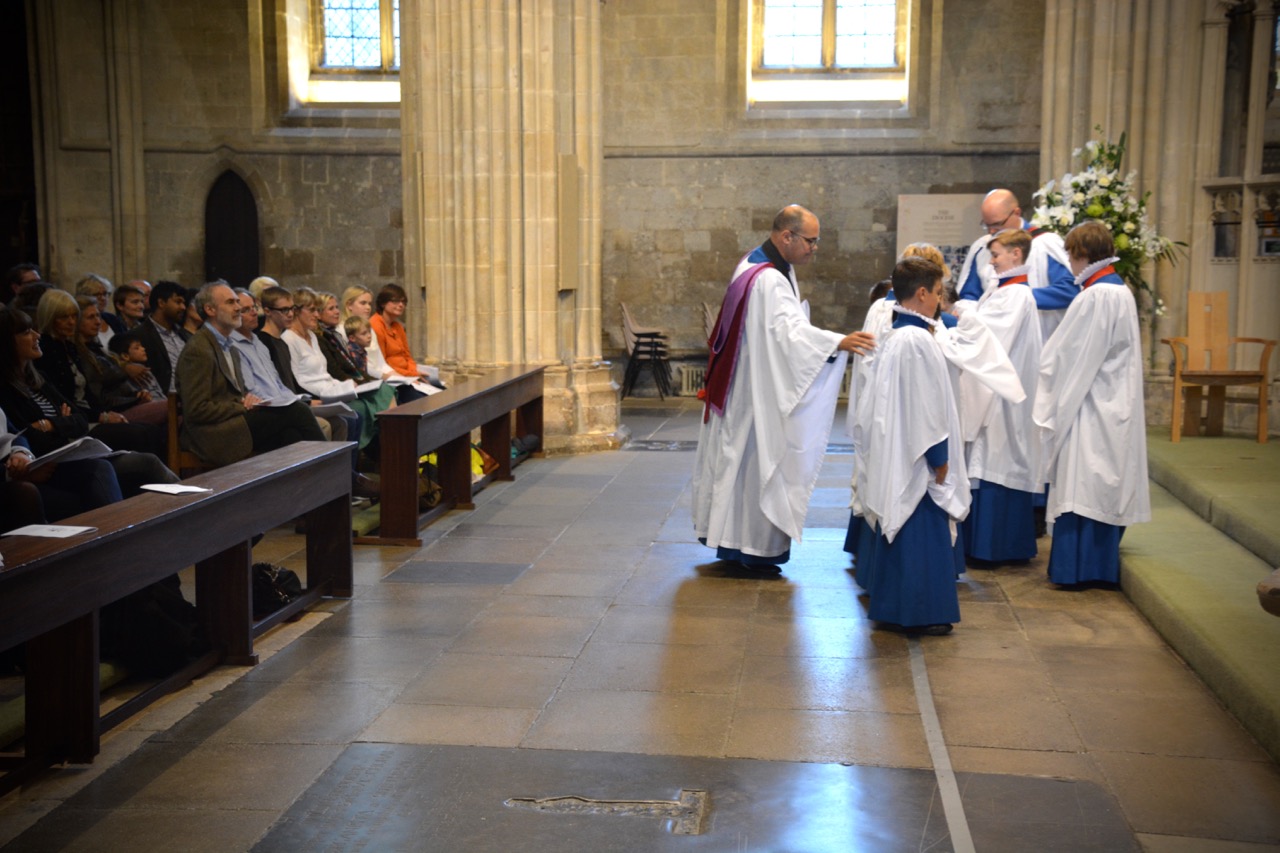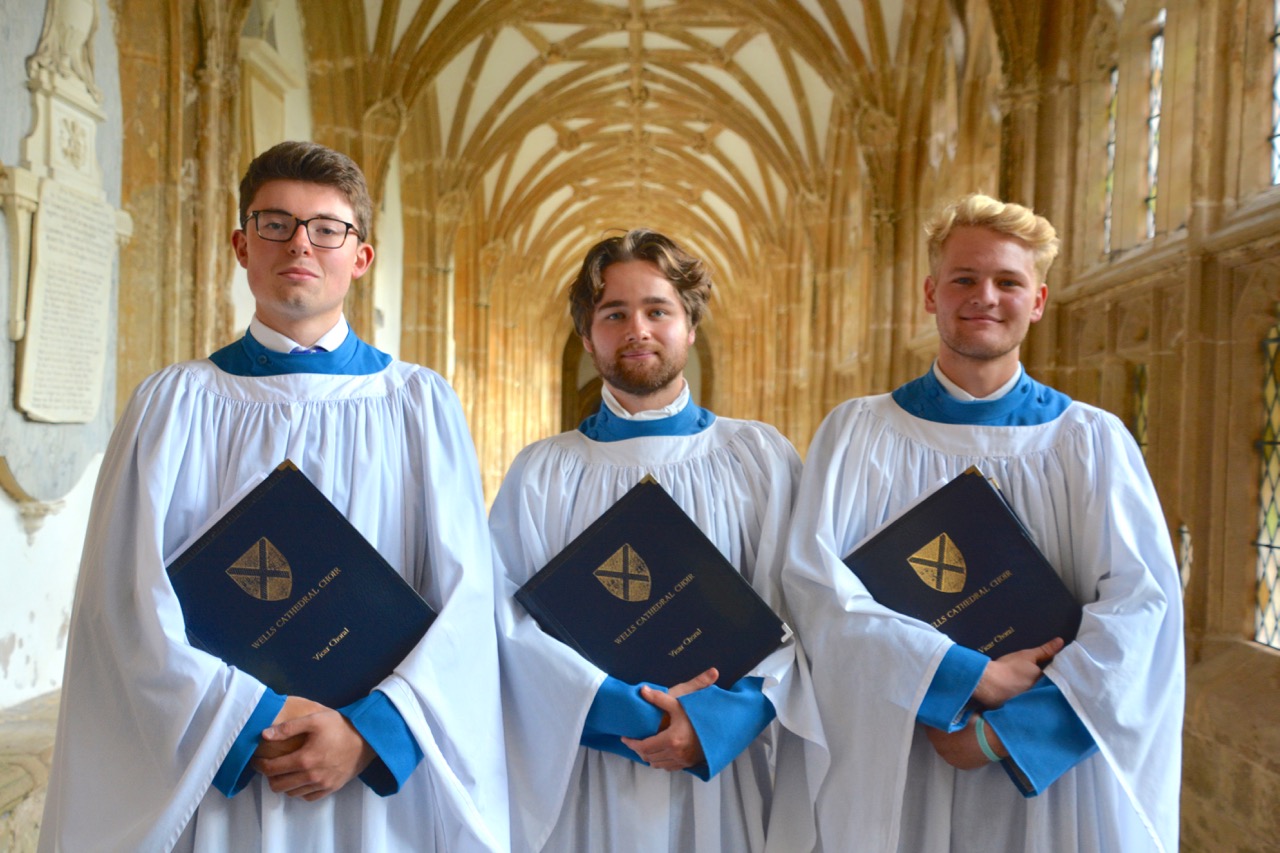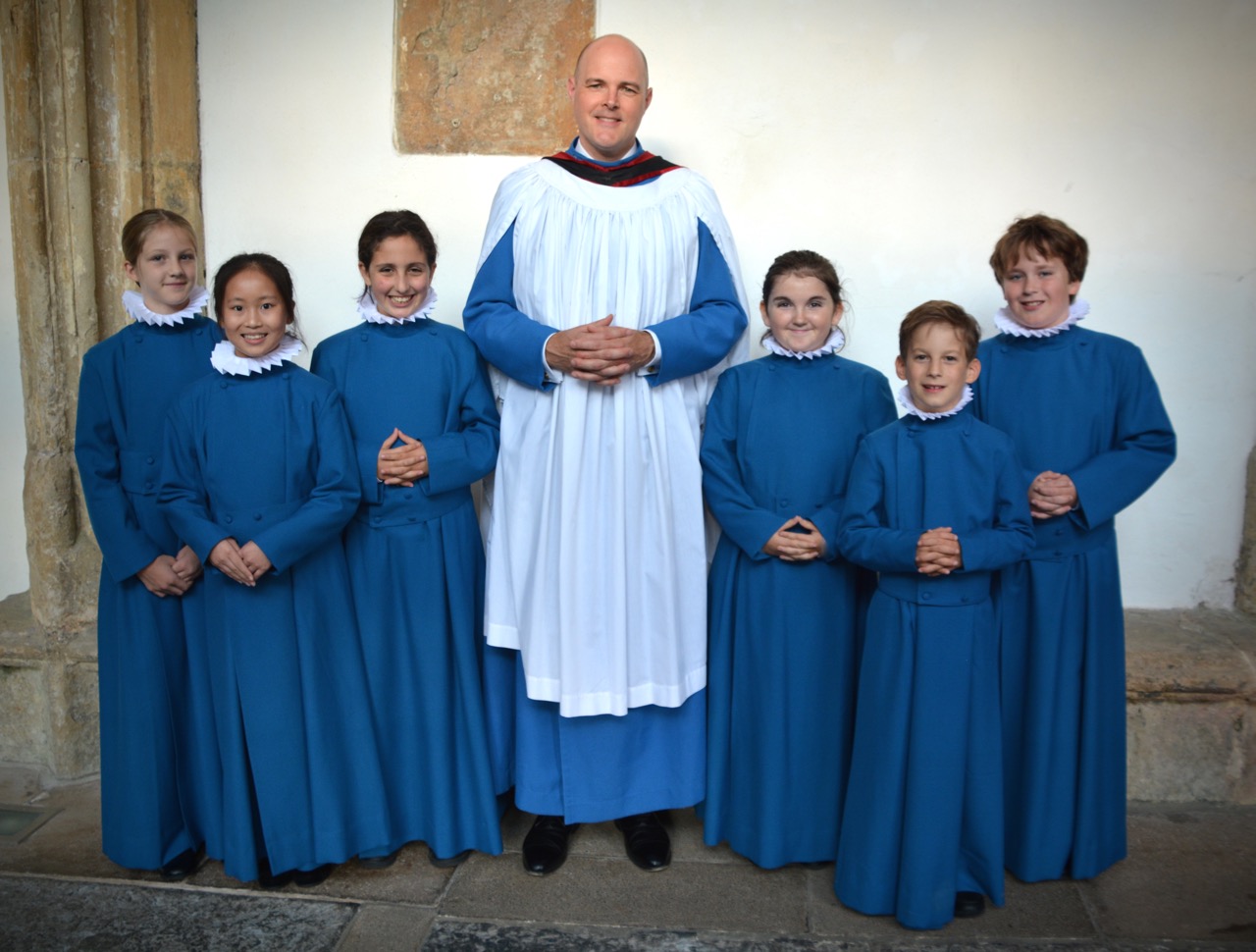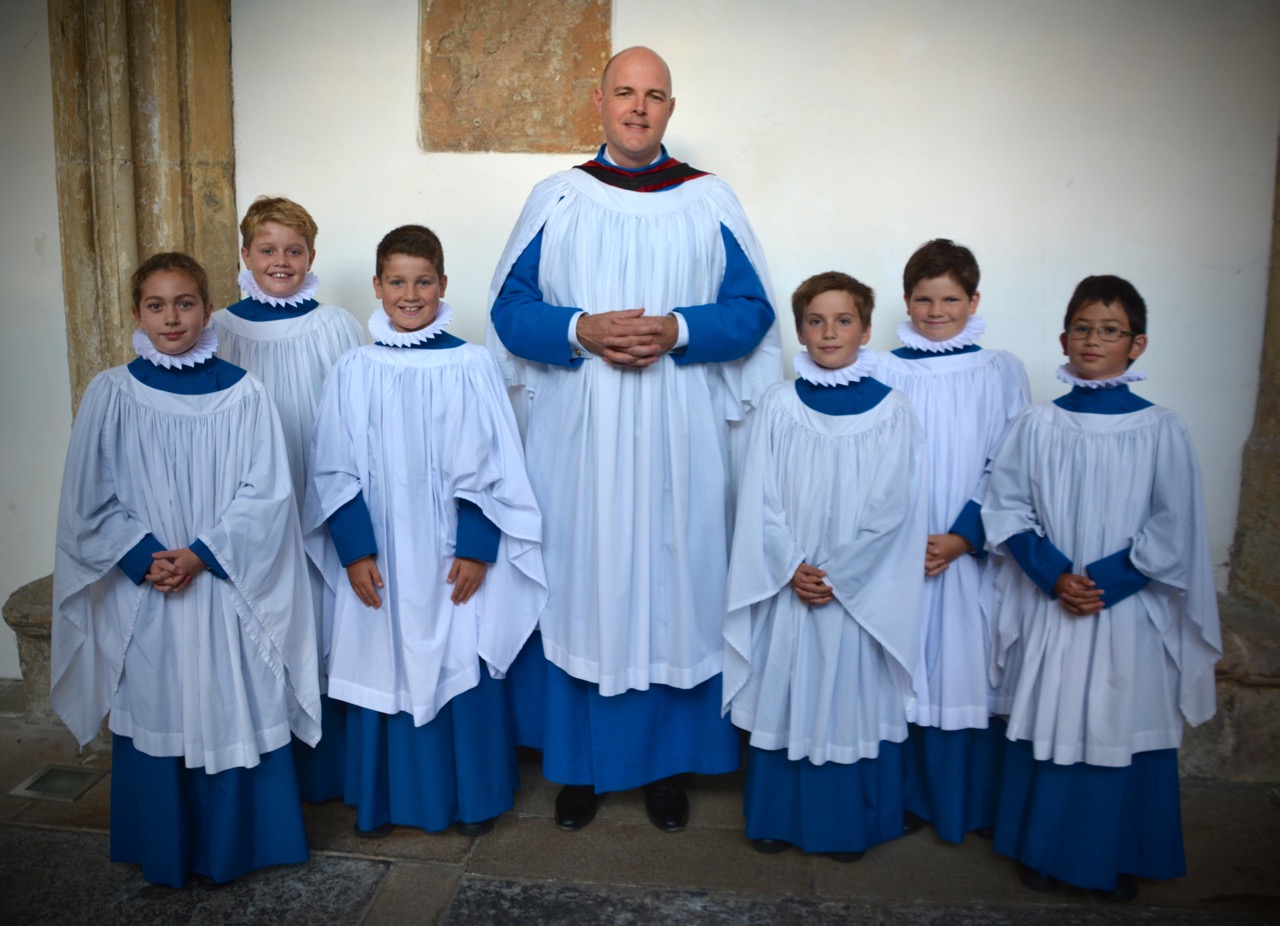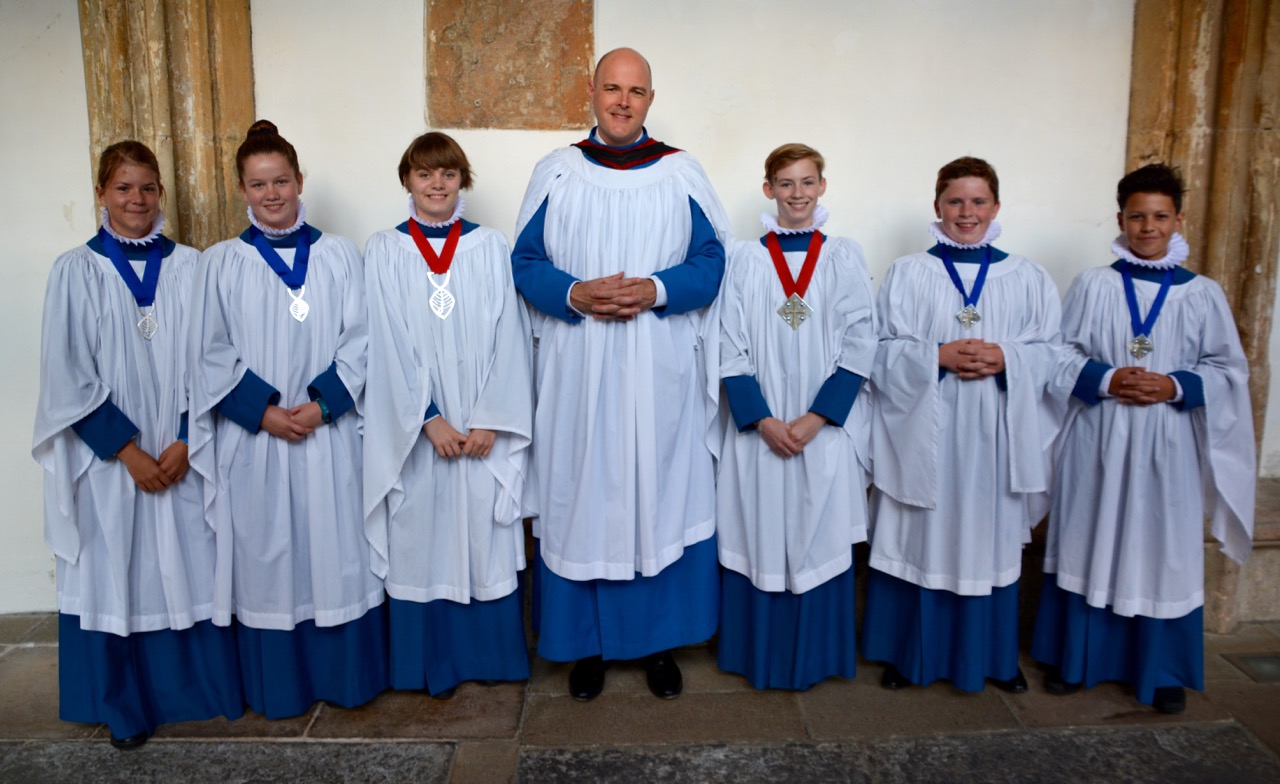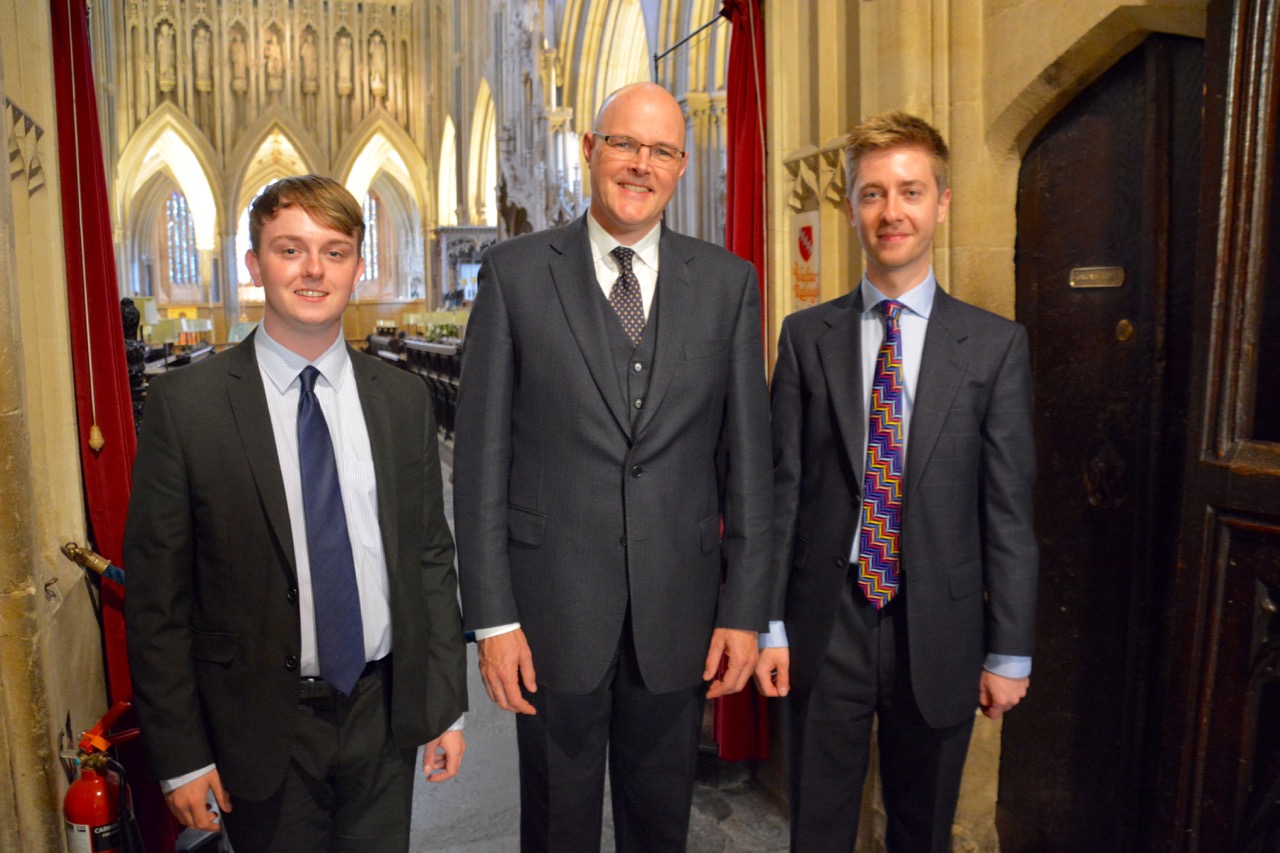The following is a thought-provoking sermon given during Sunday Evensong by The Reverend Prebendary Stephen Lynas, Senior Chaplain and Advisor to the Bishops.
And he said to me, ‘Son of man, Go now to your people in exile and speak to them. Say to them, “This is what the Sovereign LORD says,” whether they listen or fail to listen.
Some of you will know the work of the English writer Ronald Blythe. Blythe is a Church of England reader, now in his 90s. He’s very much a man of East Anglia and has been associated over many years with the poet John Clare, the composer Benjamin Britten, and the artist John Nash.
He tells the story of the day he was sent by Benjamin Britten to Blythburgh in Suffolk to persuade the Vicar, a Mr Smith, to give permission for a concert to be held in the church. I would guess this was in the late 1950s.
He records the conversation like this: “The Vicar was puzzled. Is it a band?” he asked. “Well, sort of a band,” replied Ronald Blythe.
Permission having been given, Blythe later went back again with one of the supposed band to try the church for sound. The musician was, in fact, was Yehudi Menuhin.
“Is it a band? – sort of...”
I like to imagine something similar happens here in rural Somerset when our Cathedral Choir arranges to go and sing in one of our country churches, which they do.
The churchwarden or sidesman asks – “is it a choir?” And our Precentor, or Matthew Owens, or whoever is making the arrangements, says “... Sort of”.
And what a choir. To be asked to preach at such an occasion as tonight, when we are in the company of world-class music and musicians, is a bit of a task. Ronald Blythe’s vicar, Mr Smith of Suffolk, rather exemplifies the great gulf that is fixed between the company we are in and the more amateur musical attempts of the rest of us.
There is a tension that all church musicians must wrestle with between what is ordinary, workaday regular repertoire, and the extra-ordinary, the complicated, the festival pieces. It’s the difference between a ‘sort of band’ and Yehudi Menuhin. There is music that most of us can do, and music that only some of us do. I’ll return to that, later.
Now you might have been expecting musical readings for this feast of new music today. But Biblical references to music are in short supply. Yes, obviously there are the Psalms, and in particular Psalm 150 with its trumpets, lutes and harps. We used Psalm 138 tonight, with its starting invocation of praise in music. The New Testament encourages us to use psalms and hymns and spiritual songs. But our readings tonight did not take us down a musical road. Instead, we cheated slightly, and heard the readings appointed for the first evensong of the feast of Saint Peter and Saint Paul, which is tomorrow. So we heard the prophet Ezekiel, discovering that his task was to speak the word, whether people liked it or not. Some of you will be familiar with the other stone pulpit in this Cathedral, down in the nave, with the red-lettered text around the ledge: ‘preach the word in season or out of season’ – a New Testament echo of Ezekiel’s uncomfortable job. I wonder if composers and choirmasters sometimes feel they have this same uncomfortable calling:
· I must carry on writing – whether people like it or not.
· I need to compose – whether it’s popular or not
· We need to sing this piece, whether they like it or not.
The dedication of musicians, like prophets, is admirable. But they must sometimes ask themselves: am I doing this to please the crowd, or to give voice to the inspiration that is within me?
Even as we meet here in these surroundings I am conscious that not ten miles away, Lionel Richie is taking to the main Pyramid Stage at Glastonbury. He’ll be followed later on by Paul Weller and The Who. Yesterday, I was very moved to see 87 year-old Burt Bacharach on stage working through his extraordinary catalogue of music.
And we might ask of them too: are they doing it for the money and the crowd? Or because they have this inner compulsion to make music, and to do it as well as they can?
And from Galatians, Paul’s slightly grumpy apologia for his ministry; and the linking of Peter and Paul, whose day it is tomorrow.
· Paul the Jew, called to travel the known world and preach to the Gentiles.
· Peter the apostle was to preach to the Jews.
The same task, but to different audiences. He is making the same point as Ezekiel: there is a compulsion deep inside, given by God, to spread the message, by whatever means.
I spent seven very happy years working at the BBC in religious broadcasting. I have some very cheerful memories of coming to this Cathedral from our base at BBC Bristol to transmit a live Choral Evensong. I also played a minor part in some Songs of Praise recordings here:
· I recall a Good Friday televised service where we had the cameras moving through that forest of pillars and arches behind the high altar as the choir sang the Lotti Crucifixus est
· And, given that it is 25 years ago, it is now safe to tell the story of broadcasting disasters at Wells Cathedral. For one TV recording one of the riggers had run a camera cable over the top of one of the chantry chapels in the nave sanctuary. Sadly, he managed to bring down a portion of the stonework at the top. A very angry virger came up to the producer to report this damage and said in somewhat stressed tones: I think you should know that you BBC people are only here by a majority of one vote in the Chapter. [!]
· And on another occasion we were all safely shut up in the recording vehicle reviewing tapes while Evensong took place here in the Quire. Sadly, one of our engineers had left the BBC loudspeaker system on in here, so as we were out in the truck gaily reviewing a recording of hymn singing, it was being pumped out full blast in here while one of the canons was trying to lead the intercessions. Out came the virger: “turn it off, turn it off!”
We used, in those days, to speak of two kinds of musical audience:
· There were ‘Radio 2’ people, who liked a melody that they could get hold of; words that spoke to their own life experience, and generally something accessible.
· And then there were the ‘Radio 3’ people, somewhat more ‘highbrow’, much more adventurous and knowledgeable – but not exactly ‘down on the streets with the kids’.
It is of course a false distinction, but a useful one. And nowadays you would have to add in there are also ‘Classic FM’ people, who combine a bit of both. Anyway, I shall leave you to decide for yourself which category you fit into.
New church music has been the subject of some recent controversy in the august columns of the The Church Times. They printed an article by The Reverend Dr Martin Thomas, complaining about what he sees as the lack of brave new church music.
You can assess his views on church music for yourself, but this is a man who is less than enthusiastic about John Rutter, and believes that John Tavener’s work is “neo-religious wallpaper music”.
The article provoked a storm of letters protesting that he is not thinking straight, and commending our cathedrals and churches. I am not qualified to assess the arguments but no fewer than 3 of the 7 letters published in protest mentioned Wells as a place where new music is to be he heard, including:
· “an admirable tradition of visionary new commissions under Matthew Owens…” – this from James Lancelot, Master of the Music at Durham Cathedral
· and one from our Dean Emeritus, Richard Lewis, citing 17 contemporary composers being sung in one month alone by the Wells Cathedral Choir.
This little storm in an ecclesiastical teacup does raise some interesting questions for those who love church music. We are back in the territory of music for all and music for some. As I said earlier: there is music that most of us can do, and music that only some of us do.
The following questions arise:
· Should a choir, (or indeed a Cathedral) rest on its musical laurels, or should it keep pushing boundaries of complexity – and accessibility?
· How do you make music in worship accessible to more people?
· How do you present it? Is it only in the context of traditional liturgy, like tonight, or can you showcase it in a reverent way elsewhere?
Dean Richard also made the point (in his letter to The Church Times) that it is a shame the music world tends to reside only in Book of Common Prayer or Latin, and has not moved into more of the Common Worship texts which have done duty now for more than 15 years.
One of the highlights of my own musical year is the Advent Carol Service of Wells Cathedral School. Yes, we all get to sing It came upon the midnight clear. But we also get to hear material that, for many of the congregation, is out on the edge of their experience – I’m thinking of how an Arvo Pärt piece transfixed us all a year or two ago.
It is rather delightful to find that Gary Davison’s pieces we’ve heard tonight include such strong Wells references: the canticles setting is called The Palace Garden Canticles. Now my theory was that the composer has referenced the gardens of our own Bishop’s Palace in the name. Being anxious not to get anything wrong, I ‘Googled’ those exact words to see if I could confirm.Sadly, Google could not confirm this. Instead it pointed me to a Chinese restaurant in Newcastle, called the Palace Garden, which if you are going that way, gets 4.5 Trip Advisor stars. (I’m pleased to say that the Bishop’s Palace Garden gets better than that, and has a TripAdvisor Certificate of Excellence.)
And to hear a new setting for Glory to thee my God this night is a treat, remembering that the text was written by our much-loved 17th century Bishop, Thomas Ken, remembered both for his saintliness and for his sticking to his beliefs when a change of King from Charles II to James I meant that on point of principle, he could not swear allegiance. Truly a man to preach the word ‘in and out of season’.
I began with the urge to preach and the difficulty of it: something I think that musicians feel too. And I’ve hinted at the possible divisions that music can cause, yes, even in a church or cathedral. A hundred and fifty years ago, the Reverend Samuel Barnett, a priest and social reformer began a series of concerts and lectures for the poor in Whitechapel, in the heart of London’s East End. He recruited artists and singers, and persuaded them to perform/exhibit in the Whitechapel Gallery. And Barnett said this: “Grand music heard in church seems to help many whom sermons fail to touch.”
He may have been onto something there. The words that people like me try to string together can articulate and explain the great truths and stories of the faith. Equally they can confuse or annoy.
Music cannot easily articulate the faith. But it can touch the soul and draw you to admiration, to prayer, to humility. In another context, just down the road, it can bring you into community and make you whoop for joy.
We are grateful for that musical compulsion that drives our composers and singers. There are challenges in it if we care to see them. But we rejoice in their creativity – God’s creativity – and that they are gifted to share with the rest of us lesser mortals.
As Ezekiel put it: And he said to me, ‘Son of man, Say to them, “This is what the Sovereign LORD says,” whether they listen or fail to listen.






